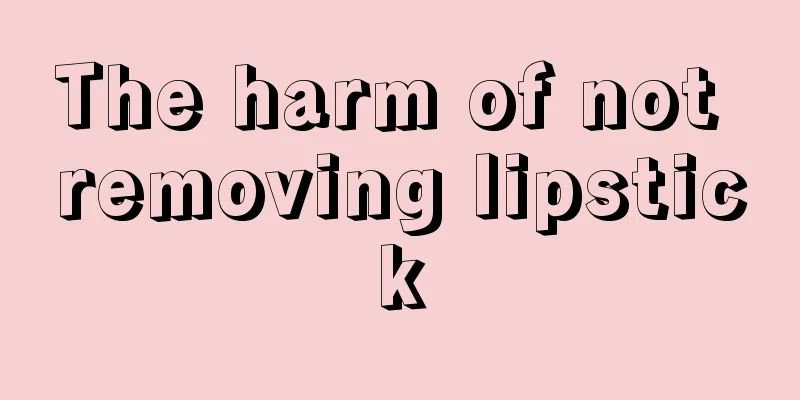Is it better for postpartum menstruation to come early or late?

|
As we all know, women's menstruation will stop immediately during pregnancy, and will return immediately after giving birth. However, menstruation after childbirth is often irregular. Many people's menstruation comes very early, and many people's menstruation comes very late. So is it good to have an early menstruation? Is early menstruation related to the body's recovery condition? This members' area will answer questions and resolve doubts for mothers regarding this issue. Is it good to have your period come early after giving birth? Is it good to have your period come early after giving birth? It depends on how early is early. Generally speaking, if the pregnant woman recovers well, she will usually have her period soon after the baby is one month old, and there is no problem at this time. However, if the repair is not good, the period may not come until the baby is one year old. Therefore, if the menstrual period comes before the baby is one month old, it is actually abnormal. So how long does it take for menstruation to come after childbirth? For mothers who do not breastfeed, menstruation usually comes within 6 to 8 weeks after giving birth. From a medical perspective, based on the tissue shape of the uterine wall, the uterus and ovaries may be able to ovulate as early as 33-42 days after giving birth. In addition, the presence of progesterone after ovulation can also be observed 6 weeks after giving birth. Therefore, if the mother does not breastfeed, menstruation usually comes within 6 to 8 weeks after giving birth. Pregnant women who breastfeed usually do not have their periods until 18 weeks after giving birth. Scientific research data show that 40% of pregnant women who do not breastfeed resume ovulation 6 weeks after giving birth; by 8 to 12 weeks after giving birth, only about 35% of pregnant women have not resumed ovulation and menstruation. For breastfeeding pregnant women, about 25% will resume ovulation and menstruation 12 weeks after giving birth, and most breastfeeding pregnant women generally take until 18 weeks to resume ovulation function. However, it is sometimes impossible to clinically determine the exact time of the first menstrual period after childbirth, and a very small number of pregnant women will begin to have light to moderate intermittent bleeding immediately after delivery. |
<<: Is it normal not to have a period one year after giving birth?
>>: Why did my period stop coming after one month of giving birth?
Recommend
What are the dangers of uterine prolapse?
Since the uterus is also a suspended organ in the...
What kind of pollution is acid rain? How does acid rain acidify the soil?
Acid rain is a complex phenomenon of atmospheric ...
What are the symptoms of pelvic inflammatory disease in pregnant women
Pelvic inflammatory disease occurs due to the inv...
What gynecological diseases can be cured by mugwort
I think everyone is familiar with mugwort leaves....
How long does it take for ovulation to occur after the ovulation test paper turns from strong positive to weak?
In modern society, many female friends have not c...
Is it normal to be sleepy in the eighth month of pregnancy?
After becoming pregnant, some people toss and tur...
Good recovery after induced labor
A woman's uterus is very important. Without t...
Can pregnant women do leg lifts?
Compared to what we have heard in the past about ...
What should girls do if they have a lot of hair loss?
Have you ever experienced this situation: girls l...
What is the best way to treat moderate cervical erosion?
Many women may experience varying degrees of cerv...
How to treat fallopian tube obstruction
In today's complex modern society, the incide...
Is pelvic closure effective?
Whether a woman gives birth by natural birth or c...
What happens if you take medication for irregular menstruation?
As we all know, women must pay attention to their...
What is the reason for the increase of yellow leucorrhea in women?
Some friends find that they have more vaginal dis...
What are the signs before a girl gets pregnant?
As today's lifestyle becomes more and more di...









